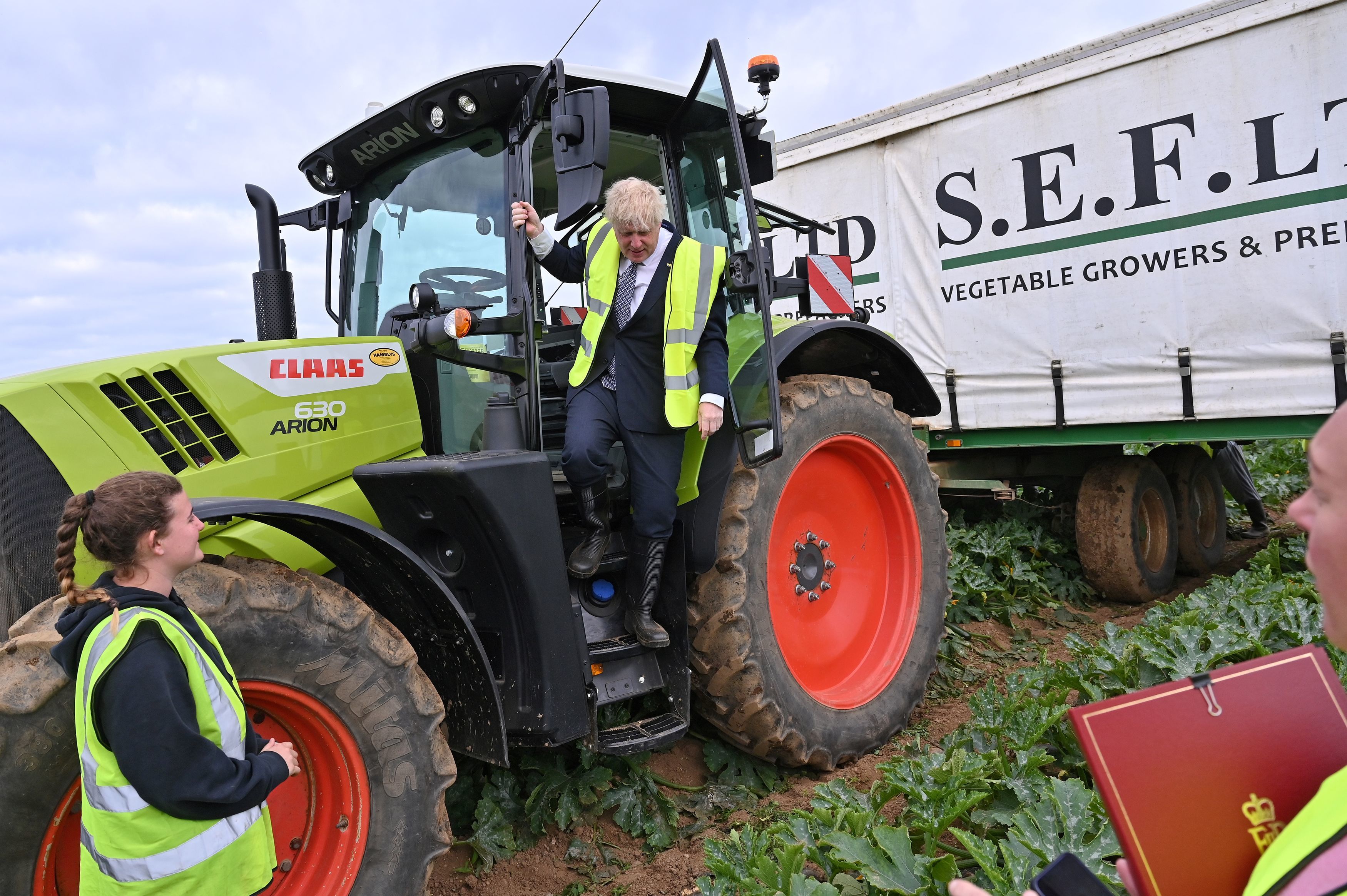Boris Johnson’s shambolic food strategy has rightly been attacked from all sides
The government is plotting a course to environmental and social disaster as it fails to take responsibility for dysfunctional food system, writes Harry Cockburn


Under pressure to redirect the narrative from the repeated law-breaking during Covid-19 lockdowns, Boris Johnson’s government administration has turned in a rapidly-assembled policy package in the shape of its so-called "food strategy".
Just as the government’s recent energy strategy lacked the vision to secure affordable clean energy for the UK now or in the future, the food strategy is threatening more of the same lack of coherence, with a similar focus on prioritising big business interests.
It should be a landmark piece of legislation, securing food supplies, helping farmers care for the land, boosting biodiversity and tackling the obesity epidemic. However, the proposals have instead been declared unfit for purpose by the government’s own lead advisor.
In his policy recommendations, Henry Dimbleby, the founder of the Leon chain of restaurants and the government’s lead advisor on food issues, set out what the British government needed to address in order to put the country on target to meet its environmental goals, while simultaneously tackling the ballooning crises of food poverty and unhealthy eating. But the government has not only failed to implement many of the key recommendations in the report, but is taking action, which Mr Dimbleby says, will mean more children go hungry.
Furthermore, funds earmarked for helping boost biodiversity will now be slashed. Last year, the government announced a post-Brexit plan to use up to £800m – a third of the farming budget – to pay farmers to rewild some agricultural land to regenerate species-rich woodlands, wildflower meadows and peatlands. But under the new food strategy this fund has been slashed to just £50m.
The strategy has been interpreted in some quarters as a success for the farming lobby, which has argued that money should not be diverted from food production – although rewilding does indirectly support food production by boosting environments in which crucial pollinating insects can survive, for example.
Many farmers have also voiced concern at the strategy, led by president of the National Farmers Union, Minette Batters, who told The Observer that the government’s previous proposals to help farmers increase food production, had been “stripped to the bone” under the new plans, meaning they would not be able to produce affordable food.
The National Farmers' Union (NFU) has also criticised international trade agreements on food which could undercut British farmers.
Previous remarks from senior figures in the government point towards the plans being junk. When he was environment secretary, Michael Gove said the UK was just decades away from soil infertility if intensive farming practices weren’t radically changed, and called for meaningful incentives for farmers to urgently tackle declining biodiversity.
Just last week, current environment secretary George Eustice told the Lords’ Environment and Climate Change Committee the government aimed to look at environmental policy from the point of view of ecologists, taking a step back to view agricultural policy and government support in the broader context farming plays in the landscape.
"If you step back and start to respect the environment as an ecosystem, actually having more permanent pasture, more flower-rich pastureland and recognising the value of livestock in the lowlands as part of a healthy rotation is actually good for the ecosystem."
But the cuts to support for such regenerative approaches will mean farmers have fewer incentives to return land to nature.
The war in Ukraine and its impact on supplies of some crops, and rising food prices is believed to be one reason why the government is aiming to channel more funds to food production, but this has been attacked as being shortsighted. Ben Goldsmith, brother of environment minister Zac Goldsmith has said "food security is a false pretext for abandoning the nature restoration agenda", recognising that they are two sides of the same coin.
The government has indicated that despite the worsening climate crisis it will not "lecture people" on what to eat, despite runaway meat consumption warping the demands on the countryside and the natural world.
As Mr Eustice indicated last week, the government has no ambition to discourage meat consumption, despite Mr Dimbleby’s report stating that 85 per cent of all UK farmland is used to either grow food for livestock, or to rear meat.
Louisa Casson, head of food and forests, Greenpeace UK, said: “By ignoring climate scientists and its own experts in favour of industry lobbyists, the government has published a strategy that, ultimately, will only perpetuate a broken food system and see our planet cook itself.
“Without significant cuts to meat and dairy, we could stop using fossil fuels tomorrow and still be heading for catastrophic levels of warming to our planet far beyond 1.5C.”






Join our commenting forum
Join thought-provoking conversations, follow other Independent readers and see their replies
Comments